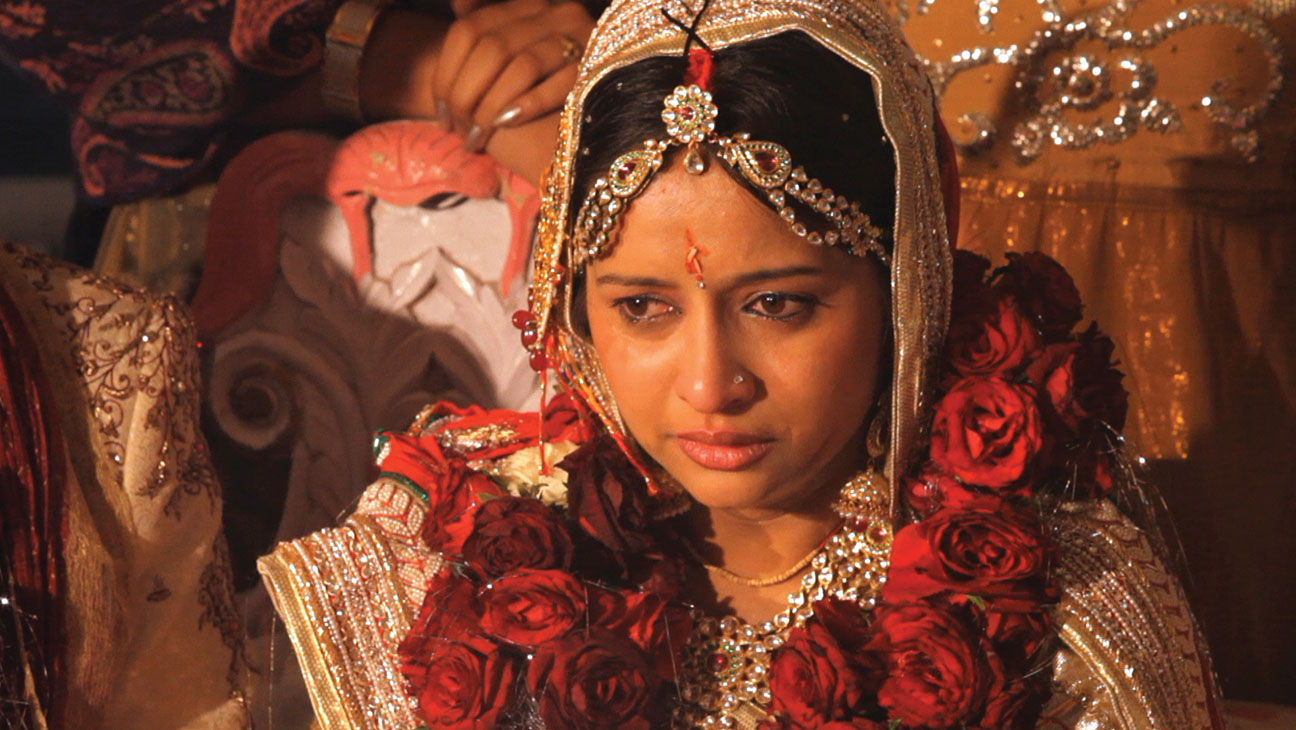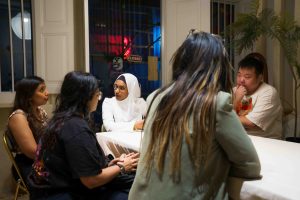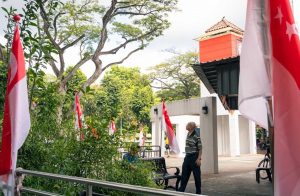It is difficult to walk the thin line between representation and endorsement. This is my main takeaway from Indian Matchmaking—currently the fourth most popular show on Netflix Singapore.
The creator—Indian, female, Oscar-nominated—says she is merely ‘telling it as it is’. The critics, however, see a gratuitous celebration of casteism, colourism, sexism, fatphobia and classism.
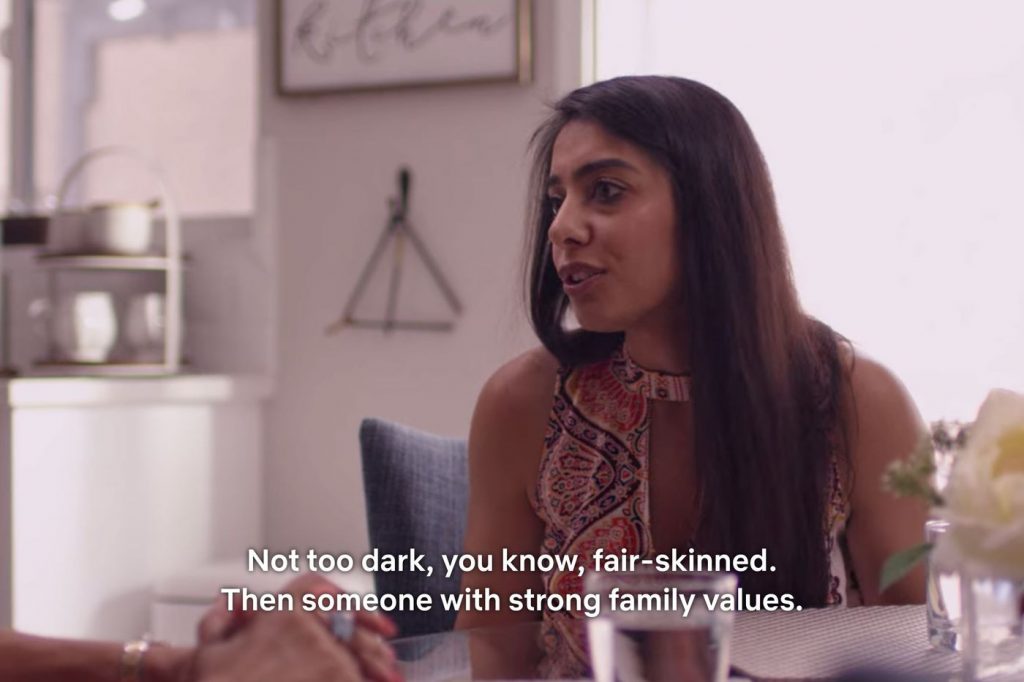
The answer is: probably not. No more than The Bachelor can offer a radical deconstruction of gender norms. The medium will contradict your message—however well-intentioned. Saving Private Ryan or Hacksaw Ridge are supposedly anti-war movies, but they nonetheless undermine their own thesis by depicting individual heroism as the noblest and most American of virtues.
A Suitable Girl is a 2017 documentary also by the same filmmaker, Smriti Mundhra. It is also about marriage in India, but that’s where the similarities begin and end. Where Indian Matchmaking is glitzy, cringe-worthy and noisily American to the point of farce, A Suitable Girl takes a more intimate and discomforting look at marriage culture.
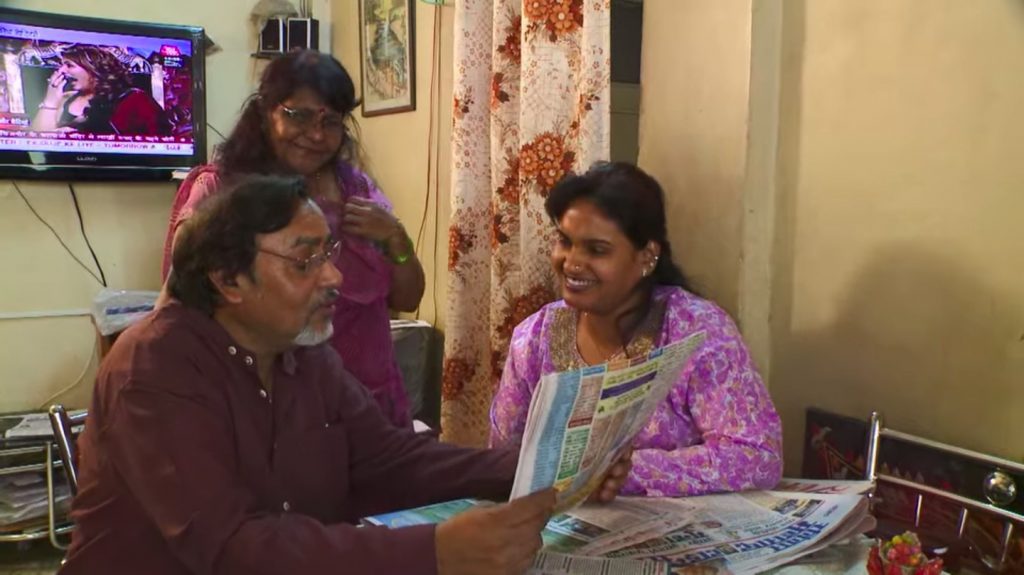
Last but not least is Ritu Taparia, an MBA graduate and EY consultant—the white collar middle-class professional par excellence. She is also the unmarried daughter of Seema Taparia, the vilified ‘Sima Aunty’ from Indian Matchmaking, who is shown putting immense pressure on her daughter to get hitched.
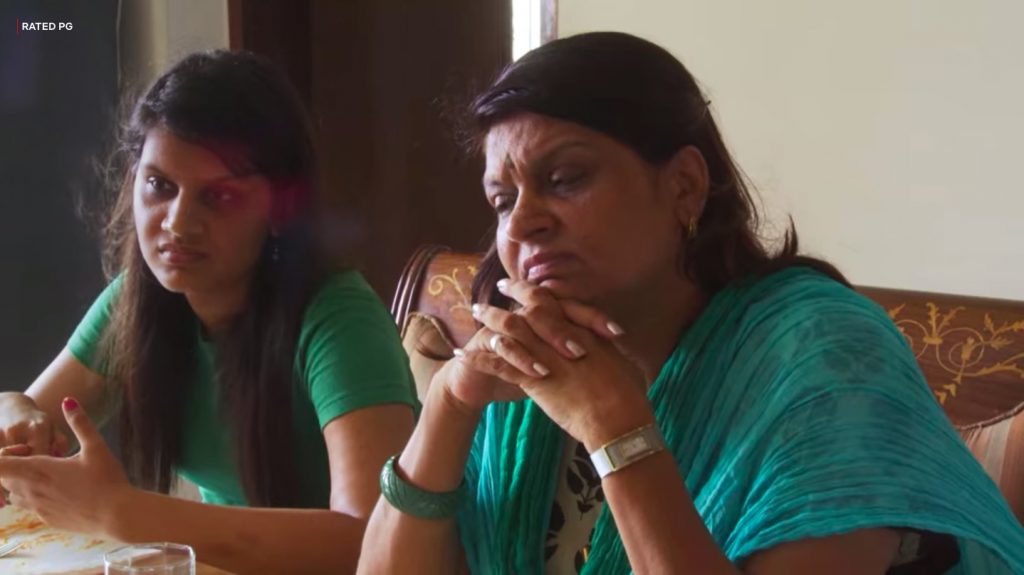
It sounds boring, but what ensues is one-and-a-half hours of utterly gripping banality. Even though their daily routines are mundane, the documentary does a fantastic job of showing how marriage—and expectations of marriage—shape their every waking moment.
Amrita, for example, basically changes her entire life post-marriage. Within a month, she goes from jeans-and-sweaters to saris 24/7 because her parents-in-law don’t like ‘western clothes’.
She is also not allowed to leave the house for groceries, or to be anything more than a pillar of the household—cooking, arranging, supporting.
Dipti, on the other hand, is under tremendous pressure to get married. She is nearly 30 and her matchmaker thinks she cannot find a match because she is ‘overweight’. Her parents’ attempt to placate one sulky suitor borders on the absurd.
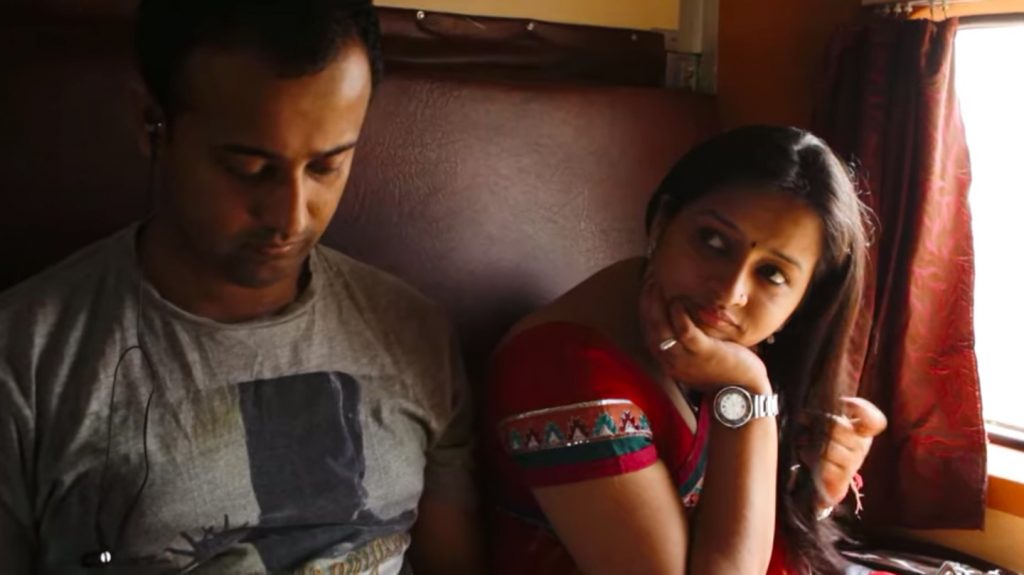
When the suitor does not call back, Dipti sinks into depression because it feels like a personal failing on her part. Everyone puts on a brave face, but there is no hiding the disappointment, however unwarranted.
So the question is: Why do it at all? Why not just reject the marriage plot and walk off into the sunset, self-attached?
This is, I think, where the documentary really shines. It avoids reducing the whole enterprise thing into a trope and shows us the complicated and sometimes contradictory motivations behind their decisions. After all, the system, however flawed, must still be negotiated.
For some, like Dipti, marriage simply does represent the culmination of her life’s ambitions. (as it is for a great many Singaporeans). For Amrita, it’s a mix of genuine affection and a desire to not disappoint her family.
She tells us: “You know, when people have a certain amount of faith in you, you try harder to stay true to it.”
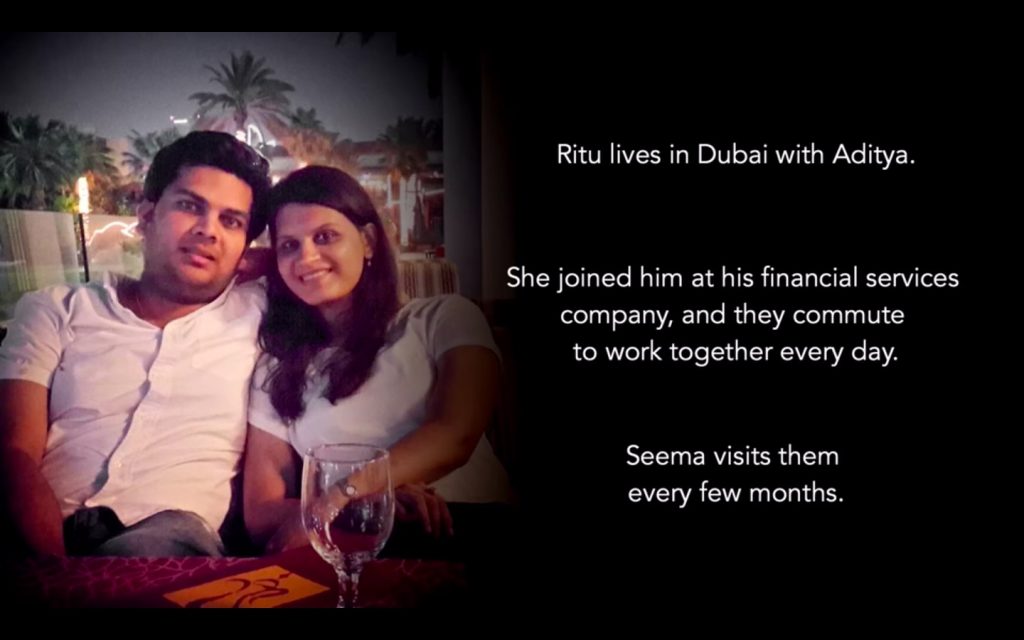
The documentary doesn’t flinch from showing us the brutal realities for men or the happiness which can result from even a broken system.
At one marriage fair, the bachelors are called forth in turn to declare their income, caste and marital status. One by one, they are paraded around like livestock as the announcer’s monotonous voice declares: “Kshatriya, 15,000 rupees, divorcee …”
At Dipti’s wedding—when she finally meets her match—the couple is smiling so warmly and so shyly that you cannot help but be moved by their genuine affection. For a brief instance, none of it matters—the sexism, the patriarchy; the oppressive norms are dissolved, made irrelevant in bliss.
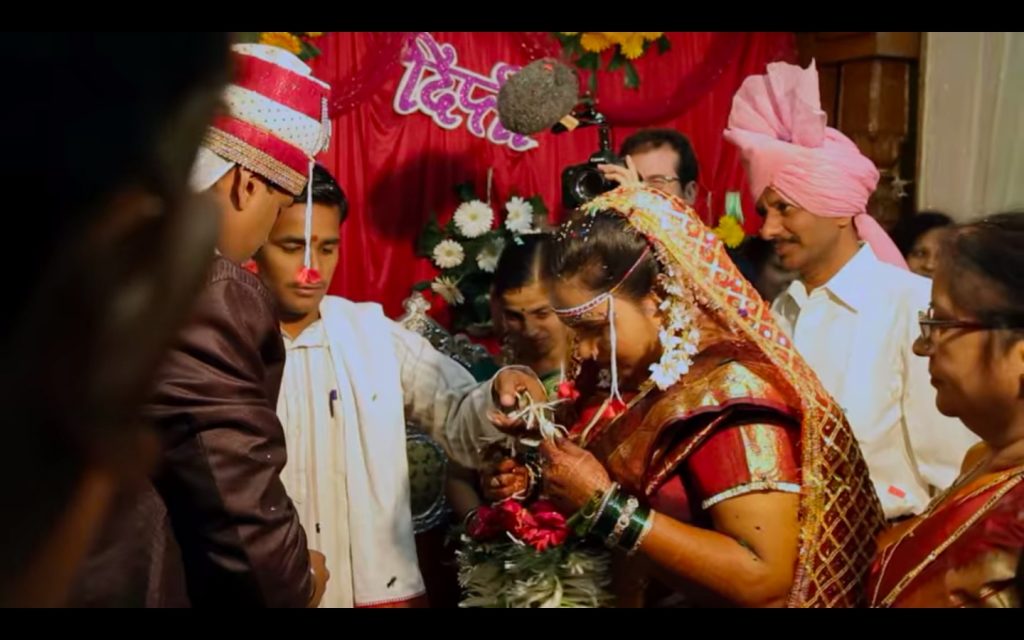
Impotent rage? Practised boredom? A sense of resentful resignation? All of the above?
That single moment is perhaps more eloquent than the entire Indian Matchmaking series, which has that overproduced quality shared by all ‘reality’ shows. ASG, on the other hand, is so intimate and so awkward that you want to yell or throw something at the screen.
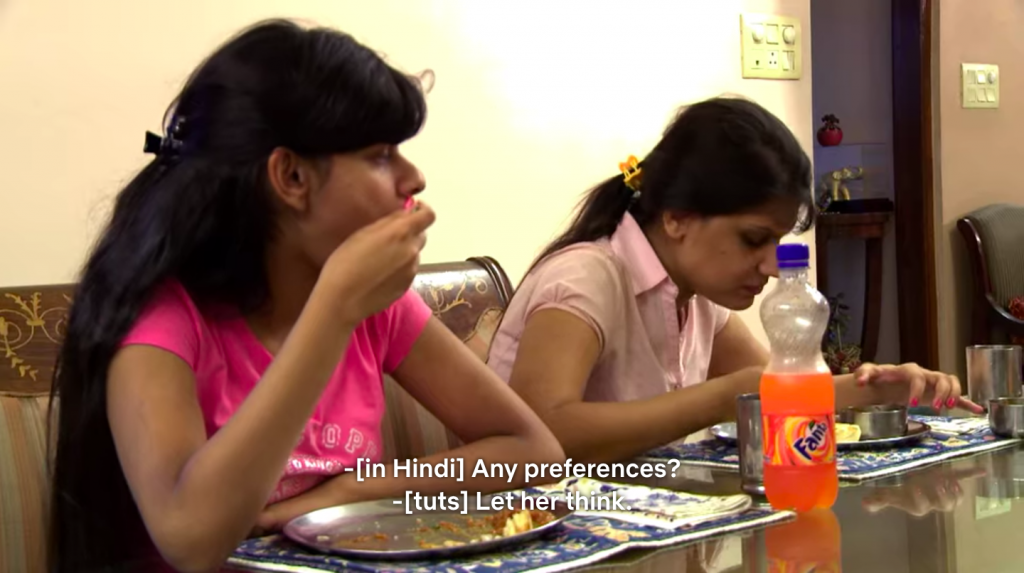
Is the documentary perfect? Of course not. By focusing mainly on the women’s interiority, it adopts a feminist perspective at the expense of a broader look at caste or class—which is once again mostly missing.
For what it does tackle, however, ASG will sweep you off your proverbial feet for its runtime. It’s not exactly a love story, but just like a love story, it might leave you enraged, or in despair or violently, irrationally happy. Possibly all at the same time.

